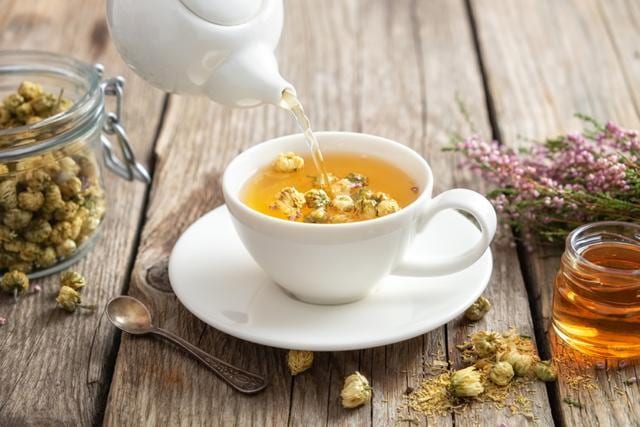Zen in the time of Coronavirus: How to stay calm and avoid giving in to mass hysteria
The fear, more than the virus, is leading to psychological repercussions. Experts help in identifying problem areas and offer solutions to get over the paranoia.
The world is going through a pandemic and the effects are visible for all to see. But what remains neglected is that in addition to the physical manifestations of the COVID-19 virus, the disease is creating psychological repercussions. Mass hysteria, myths and rumours around the disease have taken a toll on many and even healthy, unaffected individuals have fallen prey to these. It is imperative to maintain a positive outlook and take care of your mental health. “Estimate the real risk of the situation. Take a break from social media and switch off automatic updates related to news of coronavirus. With these constant updates, you don’t get time to emotionally distance yourself. We don’t need to exaggerate the risk, but we don’t need to downplay it either,” advises Delhi-based clinical psychologist Dr Pulkit Sharma.

High risk groups
Delving deeper into the socio-psychological impact and the most vulnerable groups, Dr Akanksha Pandey, a clinical psychologist based in Bengaluru, says, “The impact of these kind of crises would be higher among those with pre-existing psychiatric disorders, chronic medical conditions and substance use disorders. Both healthy and vulnerable groups would be presented with acute symptoms of stress, anxiety, fear of illness, sleep disturbances, irritability, interpersonal conflicts, domestic violence and greater substance use.” Experts agree that nipping the paranoia in the bud is very important.
Getting over the paranoia
The reality does not have to be all grim. Experts suggest ways to overcome the fear and maintain a positive outlook. “Important measures include maintaining physical and psychological hygiene, which includes modification in lifestyle, practising yoga and mindfulness-based meditation, building better communication, maintaining proper sleep hygiene and seeking professional help when required,” advises Dr Pandey.
“The time has come to go back to basics. If we can create fear through our thoughts, we can certainly create thoughts of calm and peace as well. Negative thoughts bring down our immunity. Identify and filter fake news that’s being spread on the internet,” suggests health coach and yoga therapist Ruchi Khosla. She advises focusing on breathing to achieve a sense of calm. “Focus on inhaling and exhaling. The moment you start focusing on your breath, your fear will come down,” she adds.
Read: Coronavirus effect: Preparing for Life 2.0
Ayurveda for all
Going back to the roots, Ayurveda medicine specialist Dr Vinayak Abbot strongly advises adding Indian herbs and spices to the food you cook. “Herbs such as hing, pippali , sunthi (dried ginger powder) , cardamom, ajwain, marich (black pepper) work great in maintaining the fluid balance of body.” He also suggests avoiding sweets after a meal. “Drinking water and having some sweet just after your meal should be completely avoided. They can lead to generation of phlegm or the sputum in body, thus making you prone to the virus. The point is to reduce the mucus production in the body. Avoid foods with preservatives such as breads, packed juices and canned fruits,” he advises.
Eat wholesome
The food we intake is as important as the thoughts we feed our minds. Nutritionist and diabetic educator Harshita Dilawri suggests easy-to-implement lifestyle modifications. “Meditate, paint, cook or listen to music. Include Vitamin C and anti-oxidants in your diet. Start eating amla, tomatoes, oranges, kiwi, strawberries and pumpkins. Fruits and veggies like pomegranate, berries, carrot, garlic, peaches, grapes and cherries are rich in anti-oxidants and can also lessen the stress in our bodies. Cocoa can improve cognitive function and mood. Daily dark chocolate consumption can be beneficial for individuals suffering from high levels of anxiety,” she shares.
And it’s not all bad; experts advise to indulge in little guilty pleasures, too. That block of dark chocolate or a tuna sub you have been eyeing? Yes, it’s on the menu, says chef Tarun Sibal. “Foods loaded with amino acids and vitamins, along with foods that are good for the gut are mood lifters. Fatty fish such as salmon and tuna, ghee, and nuts and seeds (such as flaxseeds, pistachios, walnuts, and almonds) are rich in omega-3 fatty acids, which have been shown to reduce surges of stress hormones,” he says.

Brew well. Sleep well
“A concoction of chamomile and ashwagandha herbal tea will help calm your brain, induce deep sleep and relieve hypertension. Chamomile is also beneficial in reducing inflammation and decreasing anxiety, while Ashwagandha is known for its restorative and rejuvenating benefits. It soothes the nerves which again induces deep sleep,” adds tea connoisseur and expert Nitish Jha.
Interact with Etti Bali @TheBalinian





